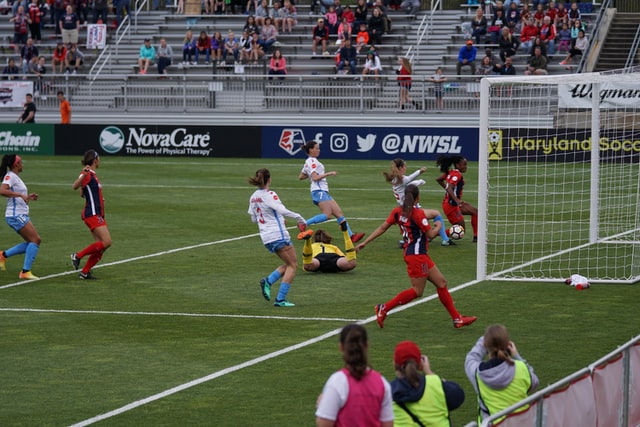Many soccer fans get confused by the terminology in the beautiful game. This is what has motivated us to answer the question – ‘Is an own goal counted as a goal in soccer?’ – as we have read some curious things online about this ruling!
In this article, we reveal whether an own goal counts, the difference between an own goal and a deflection, and introduce you to the game that saw the most own goals ever scored!
Let’s get to it.
Is an own goal counted in soccer?
Yes, an own goal is counted as a goal in soccer. If a player kicks or heads the ball into their own net, the referee awards a goal to the opposing team. Own goals are common in soccer and are just an unfortunate aspect of the game. The scorer of the own goal is listed as the goalscorer with (OG) placed next to their name. Let’s look at the concept of own goals in a little more detail.
What exactly is an own goal?
An own goal occurs when you accidentally kick or head the ball past your own goalkeeper. Own goals nearly always happen in your own penalty area or due to a pass back to your keeper that has gone wrong.
So many players have experienced the embarrassment of scoring an own goal, but there’s not a lot you can do about it! It’s best to chalk it up as an innocent mistake and get on with the game. If you dwell on an own goal for too long, your confidence will suffer as a result.
What’s the difference between an own goal and a deflection?
If you strike a ball and it hits an opposing player on its way into the net, this is classed as a deflection. It simply means that the ball’s flight deviated on its way to the goal.
The ball can deflect off any part of the body (apart from the hand and arm) on its way into the goal, and the referee will award the goal.
If the shot was ‘on target’ and a deflection takes it past the goalkeeper and into the net, the person who took the shot claims the goal.
However, if the ball was flying off-target and it deflects off a defender before nestling in the back of the net, it’s classed as an own goal.
Deflections are not recorded in the official scorekeeping, whereas own goals are.
Do own goals count in top-scorer rankings?
No, own goals don’t count in top-scoring rankings. When you think about it, that would encourage those in the running for an end-of-season award to turn the ball past their own goalkeepers to try and add to their totals!
Typically, most soccer players don’t keep count of how many own goals they’ve scored, either. After all, who would want to remember how many own goals they’ve carded throughout their careers?
What happens when a player scores an own goal in soccer?
If you score an own goal, your team concedes a goal and the referee restarts the game with a kick-off. There’s really nothing else to it!
While scoring an own goal is incredibly disappointing (and often embarrassing), you have to hold your head up and get on with the game.
If you let the own goal consume you, it will be much harder to retain your focus and help your team score a goal at the right end in the remainder of the match.
Who has scored the most number of own goals in a single match?
On October 31, 2002, AS Adema beat SO L’Emyrne 149-0 in the capital of Madagascar, Antananarivo. As soon as the game kicked off, SOE players kicked the ball back towards their goal, beating their goalkeeper in the process.
Every single goal in the game was an own goal, and it is recognized by the Guinness World Records as the highest ever scoreline in a soccer match.
As reported by ESPN at the time, SOE were protesting against the standard of refereeing in the league. They scored the own goals to make a point against the soccer governing body in Madagascar, which subsequently banned a number of their players and officials!
Recap: Is an own goal counted in soccer?
In answer to the question – ‘Is an own goal counted in soccer?’ – the answer is yes. When you send the ball past your own goalkeeper, your team concedes a goal.
However, an own goal doesn’t count in terms of top scorer rankings, so it won’t help you win the top goalscorer award at the end of the season!
It’s also important to distinguish between own goals and deflections, as deflections are only considered as own goals if the initial shot was off target.
Let’s also hope that you never find yourself in the position of Madagascan team OSE, who scored 149 own goals in a single game!

